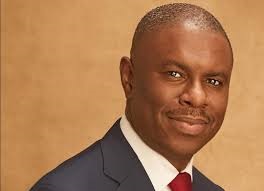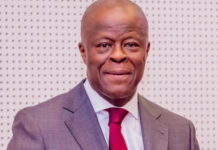Dakuku Peterside
Nigeria lately has been lucky, though, for the wrong reasons. Money has metaphorically been falling from the sky when the nation is in severe economic distress and needs every dollar to meet her obligations. First, it was the series of Abacha loots. From the United States alone, approximately $332.4 million were recovered. Between March 2021 and May 2022, €6,324,627 was recovered from foreign countries, according to the former Justice Minister, Abubakar Malami. This is among recoveries from other countries. The latest is from unknown persons and unidentified sources in Jersey, a Channel Island. The funds worth $8.9m are believed to be proceeds of corruption disguised as government-sanctioned contracts in 2014 for arms purchases but diverted to shell companies. The silent heist in Nigeria is not executed with masks and guns but with pens and deceit. The nation is robbed of her promise with the bleeding dry of public funds. In the dance of corruption, Nigeria’s public funds are the unwilling partner, waltzing away from the grasp of those who need it the most. The key actors are those we entrust with our commonwealth.
Though these alleged looted funds, though were never declared missing before being recovered now, raise a lot of fundamental questions and concerns about our public finance management and accounting systems. To the best of my knowledge, our government has never declared any fund missing, our auditors never raised any red flags about some money that cannot be traced, and nobody has been prosecuted on account of public funds traced to foreign countries. Since there is no justification for this kind of unaccounted fund that escaped our public finance gatekeepers and National Assembly oversight, the proper inferences to draw are ; there is a failure of our public finance management system, official fraud, or we are simply a criminal enterprise posing as a responsible Sovereign.
This issue is not peculiar to Nigeria though . The United States, the bastion of democracy and policeman of transparency, once invited Ernst and Young to audit the Pentagon as its Department of Defence is called. The auditor, mid-way into the exercise, concluded that the financial records of the Pentagon were riddled with irregularities to the extent that a reliable audit was simply impossible. However, the US case is a different context; some funds were untraceable, leading to significant changes.
The Nigerian case is hard to understand. Almost all recovered looted funds can be traced to government officials under the guise of legitimate transactions but end up in private accounts abroad. Yet nobody is punished, not even the civil servants who are the enablers and the contractors who serve as conduits are called to account .
Each time news of discovery or recovery of looted fund breaks , we are happy. However, the painful realisation that each recovered loot speaks to the gaps in our governance accounting and audit reporting system is yet to dawn on us. The brazenness with which government actors loot public funds, inspired by the conviction that there will be no consequences, erases any hope of a pause in official corruption.
Lack of effective internal control, non-tracking of financial transactions, absence of proper and regular audit trails, and weak oversight have combined to rub us of any sense of financial discipline and responsibility. This explains why no alarm or red flag is ever raised about the misuse of public funds. The criminal prosecution of the immediate past Accountant General of the country, whose office administered the state treasury, for alleged fraud depicts the depth into which we sank in official corruption.
Failure of governance often goes hand in hand with corruption and lack of accountability. Nigeria’s weak institutions and governance structures generally lead to a lack of stability and hinder the government’s ability to address corruption and public theft issues effectively. This theft of public funds and failure of governance have had severe consequences for Nigeria’s social and economic development. It has resulted in enduring poverty, inadequate public services, a weakened economy, and a loss of public trust in government.
Another peculiar thing about Nigeria’s official corruption ring is that no tangible effort has been made to address the gaps in the public accounting value chain and our procurement regime and execution monitoring frameworks that serve as enablers. It sends the signal that it is an embedded culture that is generally acceptable. This is a big dent in our reputation and a significant negative in requesting assistance from multilateral agencies and the global community.
It ought to concern our government that it is the vigilance of other nations financial systems that has helped in the recovery of vast sums of looted funds from Nigeria. There is an urgent need to bring our financial systems surveillance in line with international best practices.
Like elsewhere, the theft of public funds in Nigeria is a betrayal of the dreams of our people, a crime that shackles progress and strangles the hopes of a nation. Theft of public funds in Nigeria isn’t just an economic crime; it is a theft of education, healthcare, and infrastructure, leaving the people to pay the price for the greed of a few. When public funds vanish into the shadows of corruption, the light of opportunity dims for every Nigerian. We must stand united against the theft that darkens our collective future.
Nigerian citizens who are supposed to be victims of looted funds are either indifferent or complicit by default. Citizens’ activism and demand for accountability on institutions and government officials and a more open government is almost non-existent. Tolerance for corrupt government officials is relatively high for various reasons.
Theft of public funds and failure of governance are serious issues that can have significant consequences for a society. Addressing the theft of public funds and failure of governance requires a holistic approach that involves legal, institutional, and societal changes. It is an ongoing process requiring sustained efforts from domestic and international stakeholders.
We must overhaul our financial management systems and procedures to track and monitor public funds at every stage. We must deepen the adoption of technology for financial transactions and reporting. Government must embrace digital technologies and e-governance initiatives to minimise the manual handling of funds management, reduce corruption opportunities, and enhance transparency and efficiency in public service delivery. This is more important not only to checkmate the continuous looting of public funds but also to stop the re-stealing of the recovered stolen funds from abroad.
We must strengthen our anti-corruption institutions, such as the Economic and Financial Crimes Commission (EFCC) and the Independent Corrupt Practices and Other Related Offences Commission (ICPC). These institutions must ensure that existing anti-corruption laws are rigorously enforced. This includes prosecuting individuals involved in corrupt practices regardless of their status or influence.
The government must demonstrate a strong political will at the highest levels of government to stop the theft of public funds at all levels of government. Leaders must set an example of integrity and accountability, creating a culture of transparency throughout the government. They must strengthen internal and external auditing processes to ensure a thorough examination of government expenditures. Independent audit bodies can be crucial in identifying irregularities and holding officials accountable.
The government must establish effective mechanisms to recover stolen assets domestically and continuously through international cooperation. This includes cooperation and collaboration with the international community, international institutions, and other countries to trace and repatriate funds from abroad, share best practices, receive technical assistance, and coordinate efforts against transnational corruption.
We must adopt a multi-dimensional and multi-stakeholder engagement approach to make any meaningful improvement in tackling public funds theft. Civil society organisations, the media, and the public must actively monitor government activities and expose corrupt practices. This can help create a checks-and-balances system. Citizen activism, advocacy, and public awareness campaigns can help shed light on corrupt practices and push for necessary reforms.
The return of looted funds is not just a financial recovery but a wake-up call to take necessary steps towards rebuilding Nigeria’s integrity, public sector financial control mechanism, audit reforms and securing a brighter future for all Nigerians. As looted funds find their way back to Nigeria, it is a testament to the global commitment against corruption. We must ensure these resources are invested in projects that benefit the people and strengthen the nation. Repatriating looted funds is more than a legal process; it is a moral imperative. Nigerians are watching and will hold the government accountable for using these funds.





















